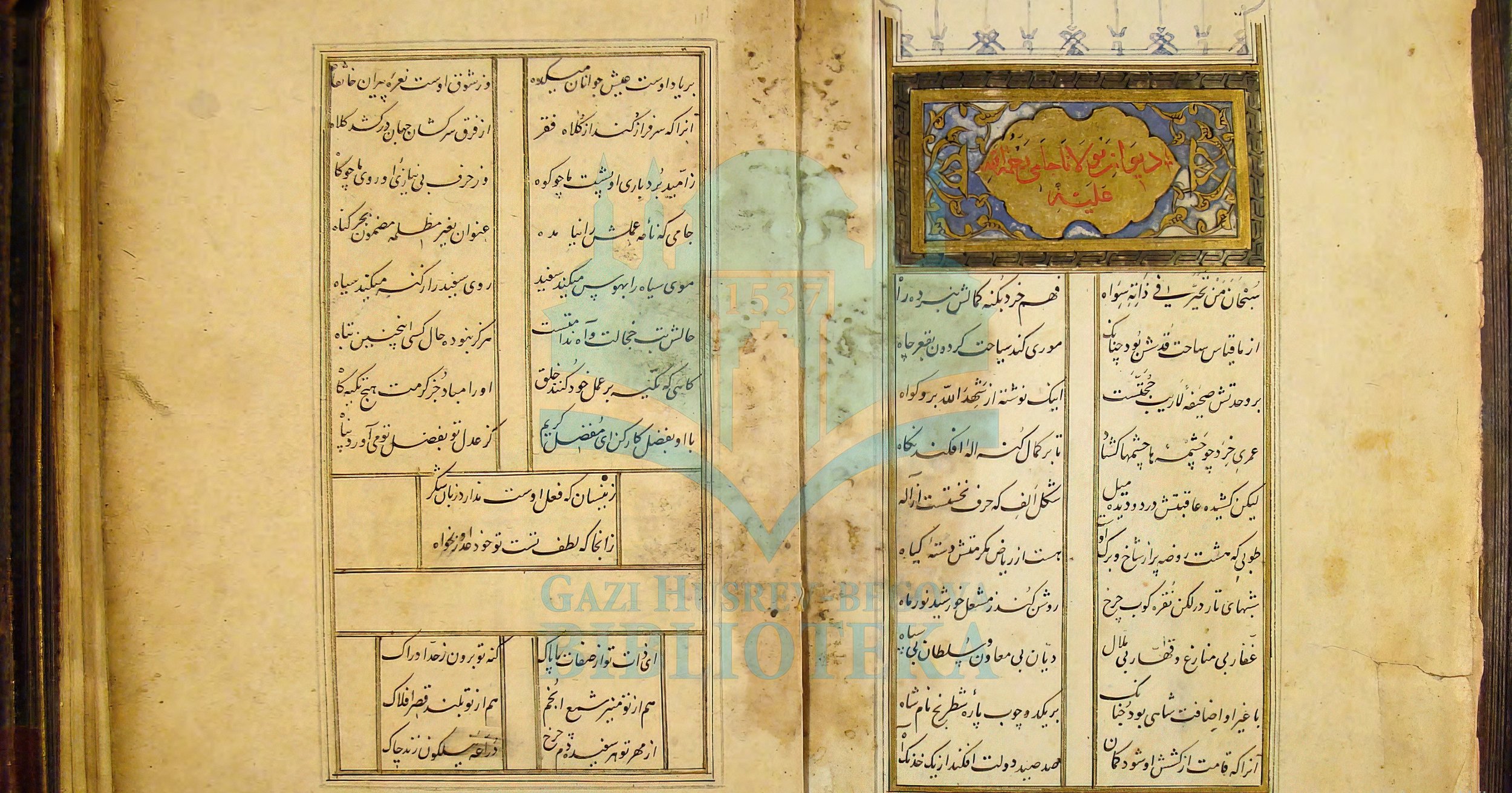
MANUSCRIPTS OF PERSIAN POETS IN BOSNIA
Author: Ekrem Tucaković, PhD, Riyasat of the Islamic Community in Bosnia and Herzegovina • Illustration: Divan of the Persian poet Abdurrahman Dzami, Gazi Husrev-beg's library, R-4417.

Gazi Husrev-beg Library in Sarajevo is the most significant treasury which stores manuscripts in Oriental languages important for studying the cultural history of Bosnia and Herzegovina, intellectual developments, literary-artistic tendencies and, generally, diverse academic and cultural trends in the period of centuries-long Ottoman administration in Bosnia and Herzegovina and the region.
The smallest part of the collection of manuscripts in Oriental languages in the Gazi Husrev-beg Library are manuscripts in Persian. Most part of the preserved manuscript holdings includes manuscripts in the area of Persian literature and language.
This part of the Persian manuscript collection clearly confirms that Bosniaks recognized literary values as early as by the end of the 15th century and that they were inspired by great poets who still have a prominent place in the world poetic heritage. It also speaks of the dominant literary developments, trends and influences in a vast geographic area and in completely different social and political environments, from Indian subcontinent to the banks of the Una and the Korana as the westernmost branch of Islamic cultural influence. For a long time, this geographic area shared very similar literary criteria, forms, even motifs and topics.
Gazi Husrev-beg Library holds copies of manuscripts, whole or fragments, of almost all the significant Persian poets and writers. According to the number of handwritten copies of some works or authors, we can claim that among Persian poets, people of these regions particularly favored Feriduddin Attar and his works Pandnāma and Mantiq at-Tayr, works by Saadi Shirazi: Būstān and Golestān, Hafizov Dīvān, those by Abdurahman Jami and Masnavi by Jalaluddin Rumi. This conclusion is derived from the fact that these works were the most frequently copied, translated and commented on, since they make up the largest part of literary materials in Persian in this library.
An overview of owners of the manuscripts and places from which they were brought to Gazi Husrev-beg Library reveal that in many academic centers, intellectual circles and families in Bosnia literary literature which was, at the time, a sign of cultural prestige was read and copied. Same as works by foreign writers and poets are translated and published today, works by foreign writers used to be copied in Bosnia and Herzegovina or brought here in the past. Obviously, they were not translated since intellectual elite who used them did not have a great need for translation but rather read and commented on original publications.

